Another death in prison – Outrage in Kos detention centre after medical attention withheld
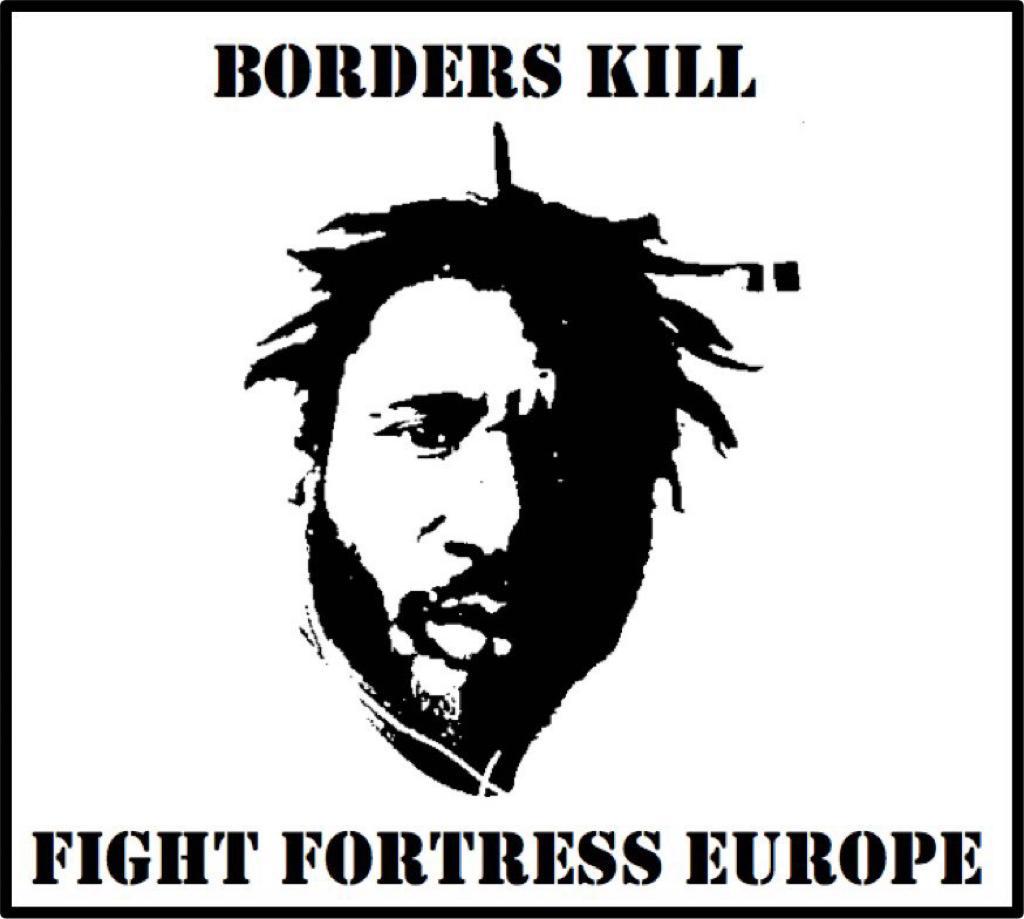
Hundreds of detainees in the pre-removal detention centre on Kos (Greece) are still shocked by the death of Diabate Macky., a 44-year-old man originally from Guinea Conakry, who died last Wednesday, March 24, after repeatedly asking to be taken to hospital. His requests were systematically ignored.
One of his colleagues explained how “everyone in the camp is overwhelmed. The man even lifted up his shirt and showed the policeman that he had already been operated on twice. Still, they have put him in jail”.
His colleagues in the prison reported that Diabate Macky’s health was delicate upon his arrival to the Aegean island at the end of January. He attempted to prove his medical condition was severe enough to be considered “vulnerable”, a health status that would have spared him from detention. He showed the police officers his documents confirming that he had undergone two operations on his abdomen, and asked to be transferred to the open refugee camp in Pyli. Despite this, his request was rejected and he was detained for the duration of his time in Greece.
His medical condition drastically deteriorated in the days prior to his death, as one of the prisoners explains:
“In the last five days he insisted on being taken to the hospital. Two days ago he went to the police but they told him that they could not do anything, that it was too late to visit the nurse”. When he was finally allowed to visit the nurse the following day, she gave him 3 paracetamol tablets but refused to bring him to the hospital.
Diabate Macky died at approximately 20:30 on the same evening. The detainees condemn the authorities responsible for the Pre-Removal Detention Centre and assert that the death of Diabate Macky is a direct result of the authorities negligence. They request that the Guinean community on Kos, along with the Guinean authorities, be informed of the events in order to contact his family and arrange for the repatriation of his body.
The deplorable living conditions in detention centres for migrants in Greece have been repeatedly denounced, in particular with regard to the lack of medical care. As the Greek Refugee Council (GCR) reported in its report published last year on the conditions in detention centres in Greece, “substantial medical staff shortage has been observed in PRDFs [pre-removal detention facilities] already since the previous years and the findings of the CPT in 2018 regarding the provision of health care in pre-removal centres are still valid. As the CPT has mentioned ‘the available resources are totally inadequate compared to the needs observed. The number of health-care staff in each of the centres is insufficient. In some centres, there is no doctor and even the most basic medical equipment is lacking. There is also a total lack of effective routine medical screening of new arrivals, including screening for contagious diseases or vulnerabilities. In short, even the most basic healthcare needs of detained persons are not being met.’”[1]
Although official sources claim that 4 nurses are employed by AEMY (a private institution supervised by the Greek Ministry of Health) in the pre-removal detention centre in Kos (Information provided by the Directorate of the Hellenic Police, data from December 2019), the prisoners claim that there is currently only one person serving more than 350 prisoners – according to their estimates.
AEMY was already in the spotlight following the suicide of one detainee in the Moria PROKEKA (Lesvos) on 6 January 2020. Although the medical team was officially comprised of one social worker and one psychologist, the position of the social worker was left vacant since April 2019. Additionally, there was no replacement staff hired during the period when the psychologist was on leave.[2] The lack of staffing at this centre meant that no psychological care was available in the person during the final weeks of the inmates life. Instead of receiving psychological support, he was locked in solitary confinement.
These two cases clearly bring to light how political decisions that determine the living conditions in these detention centres – including the lack of medical assistance – have deadly consequences.
Although the conditions in which migrants live on the island of Kos are less known in comparison to Lesvos, Chios or Samos, this island shows one of the worst faces of both Greek and EU migration policies in recent years. Kos, along with Lesvos, was one of the places where the “low profile detention scheme” was launched in October 2016, a pilot programme where migrants are detained upon arrival depending on their country of origin. This practice has been denounced by several legal and human rights organisations as having no legal basis and as constituting arbitrary detention for the purposes of Article 9 of the International Covenant on Civil and Political Rights. The HIAS report on the “low profile scheme” published in 2019 already exposed the inhumane and degrading detention conditions, including the alarmingly inadequate medical services. It also detailed the barriers in acquiring vulnerability status for people with severe health problems detained in PROKEKA.[3]
The situation worsened from January 2020 when the far-right “New Democracy” government introduced extremely restrictive amendments to the asylum law and began to arrest and detain all new arrivals on Kos, including women and children, regardless of their country of origin. This new reality is composed of several violations of fundamental laws – along with the arbitrary arrest of adults, the detention of children for purely migration-related reasons is prohibited under various articles of the Convention on the Rights of the Child.[4]
To conceal these violations, the authorities systematically break mobile phone cameras to prevent detainees from reporting on conditions in the detention centre, as well as the lack of adequate food, basic hygiene products or clothing. They also denounce severe incidents of police violence, lack of access to lawyers, which hinders the management of their asylum procedures and a long list of violations of fundamental rights.[5]
We condemn the institutional violence and racism, both by the Greek and European authorities, which are responsible for the death of Diabate Macky, as well as for the death of thousands of people at the European borders. As we saw again on the 24th of March, their migration policy aiming to prevent people from reaching European territory and forcing them into a state of disenfranchisement and desperation is in fact a policy inducing death.
We stand in solidarity with the people on the move, their families and friends. Today especially with the family, friends and fellow detainees of Diabate Macky.
[1] Greek Refugee Council (GCR), “Conditions in detention facilities”. Available here: https://asylumineurope.org/reports/country/greece/detention-asylum-seekers/detention-conditions/conditions-detention-facilities/#_ftn15
[2] Deportation Monitoring Aegean, “Cruel Detention Policies in Greece on the Rise – Death in Moria Prison shows the Violence of Migrant Incarceration System in the European Hotspots”. Available here: https://dm-aegean.bordermonitoring.eu/2020/01/18/cruel-detention-policies-in-greece-on-the-rise-death-in-moria-prison-shows-the-violence-of-migrant-incarceration-system-in-the-european-hotspots/
[3] HIAS, “Locked up without rights. Nationality-based detention in the Moria refugee camp”. Available here: https://borderlandscapes.law.ox.ac.uk/sites/default/files/2020-01/report_on_low_profile_detention_in_greece_hias_dec_2019.pdf
[4] Global Detention Project, “Annual Report 2019”. Pag 5. Available here: https://www.globaldetentionproject.org/global-detention-project-annual-report-2019
[5] Deportation Monitoring Aegean, “Refugee Incarceration on Kos Island – The Greek Plans Become Reality: Children and Families Imprisoned Behind NATO-Wire”. Available here: https://dm-aegean.bordermonitoring.eu/2020/02/11/refugee-incarceration-on-kos-island-the-greek-plans-become-reality-children-and-families-imprisoned-behind-nato-wire/

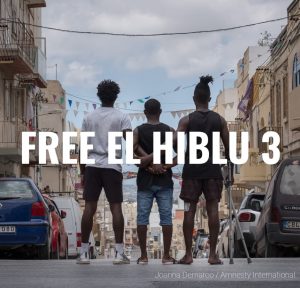
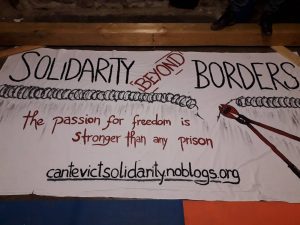 Heute ist aber nicht nur der Jahrestag der Pariser Kommune. Heute vor genau fünf Jahren, am 18. März 2016 verabschiedeten die Europäische Union und die Republik Türkei ein Abkommen, das als EU-Türkei-Deal bekannt wurde.
Heute ist aber nicht nur der Jahrestag der Pariser Kommune. Heute vor genau fünf Jahren, am 18. März 2016 verabschiedeten die Europäische Union und die Republik Türkei ein Abkommen, das als EU-Türkei-Deal bekannt wurde.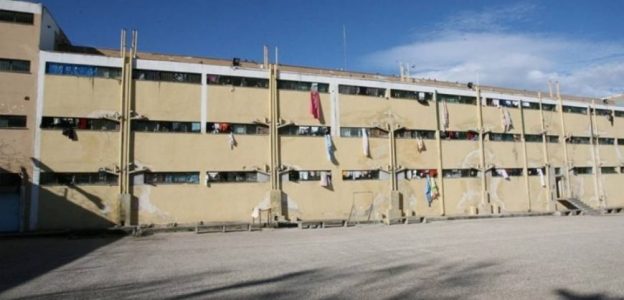

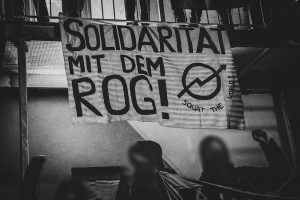
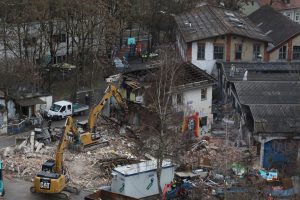

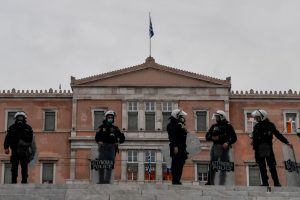

 Vorgestern, am 19.Januar 2021 wurde das
Vorgestern, am 19.Januar 2021 wurde das 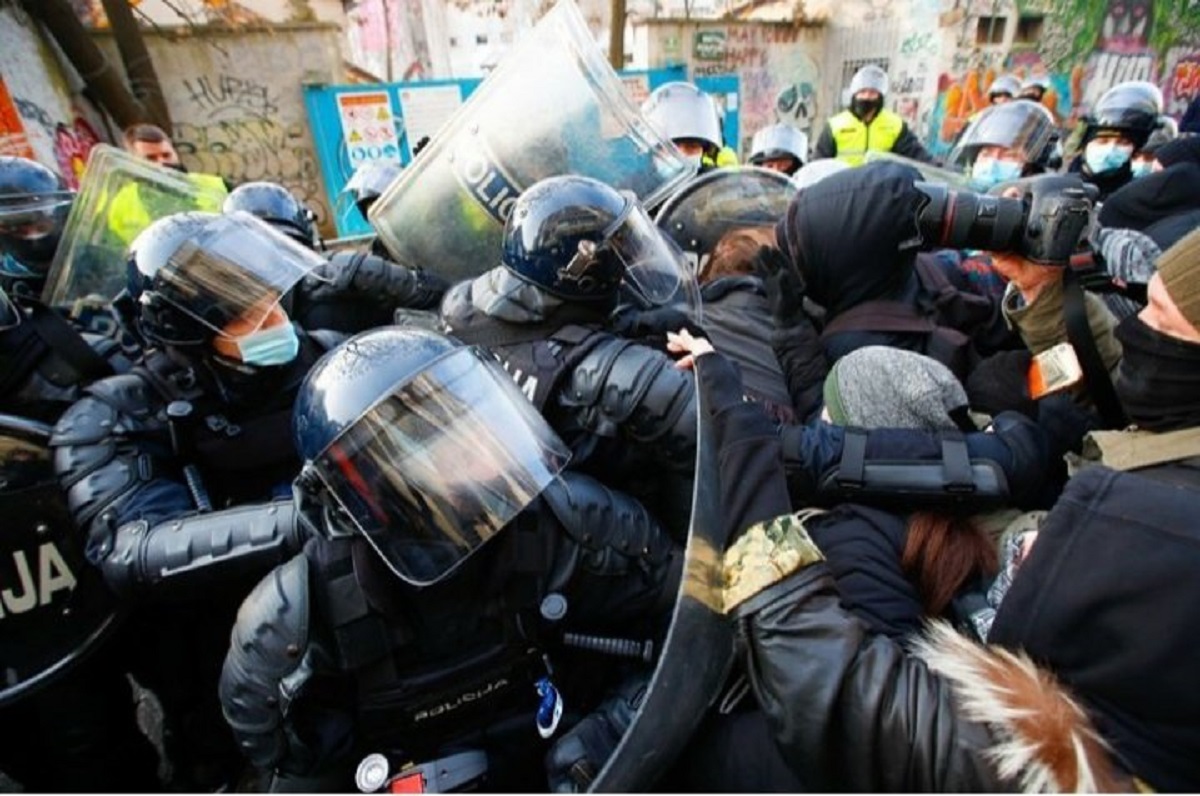 Ljubljana. Slowenien. 19. Januar. 2021. In den frühen Morgenstunden tauchten Bereitschaftspolizisten bei der autonomen Fabrik Rog auf. Sie begannen, die besetzte Häuser ohne Ankündigung und ohne rechtliche Grundlage zu räumen.
Ljubljana. Slowenien. 19. Januar. 2021. In den frühen Morgenstunden tauchten Bereitschaftspolizisten bei der autonomen Fabrik Rog auf. Sie begannen, die besetzte Häuser ohne Ankündigung und ohne rechtliche Grundlage zu räumen.






